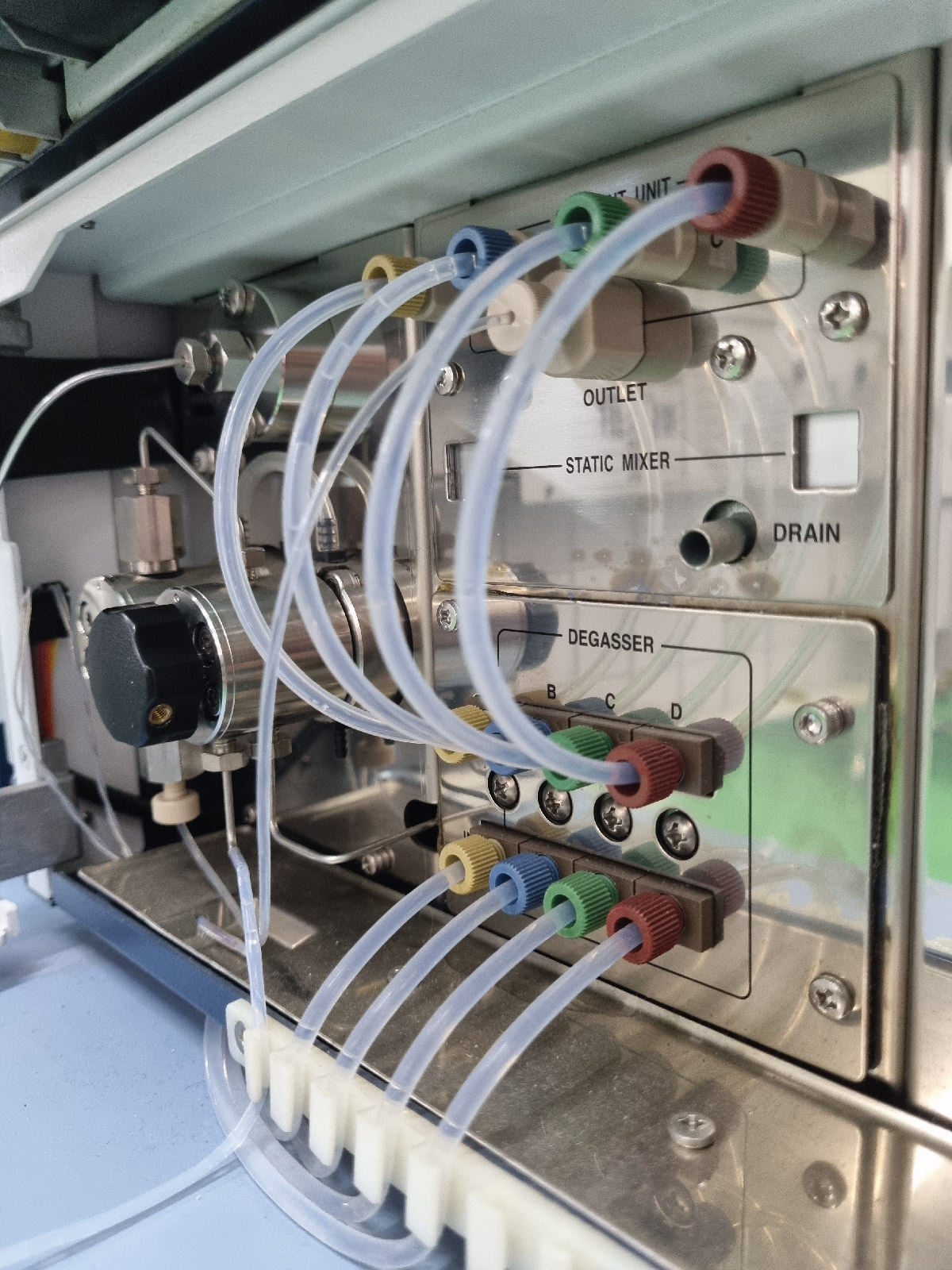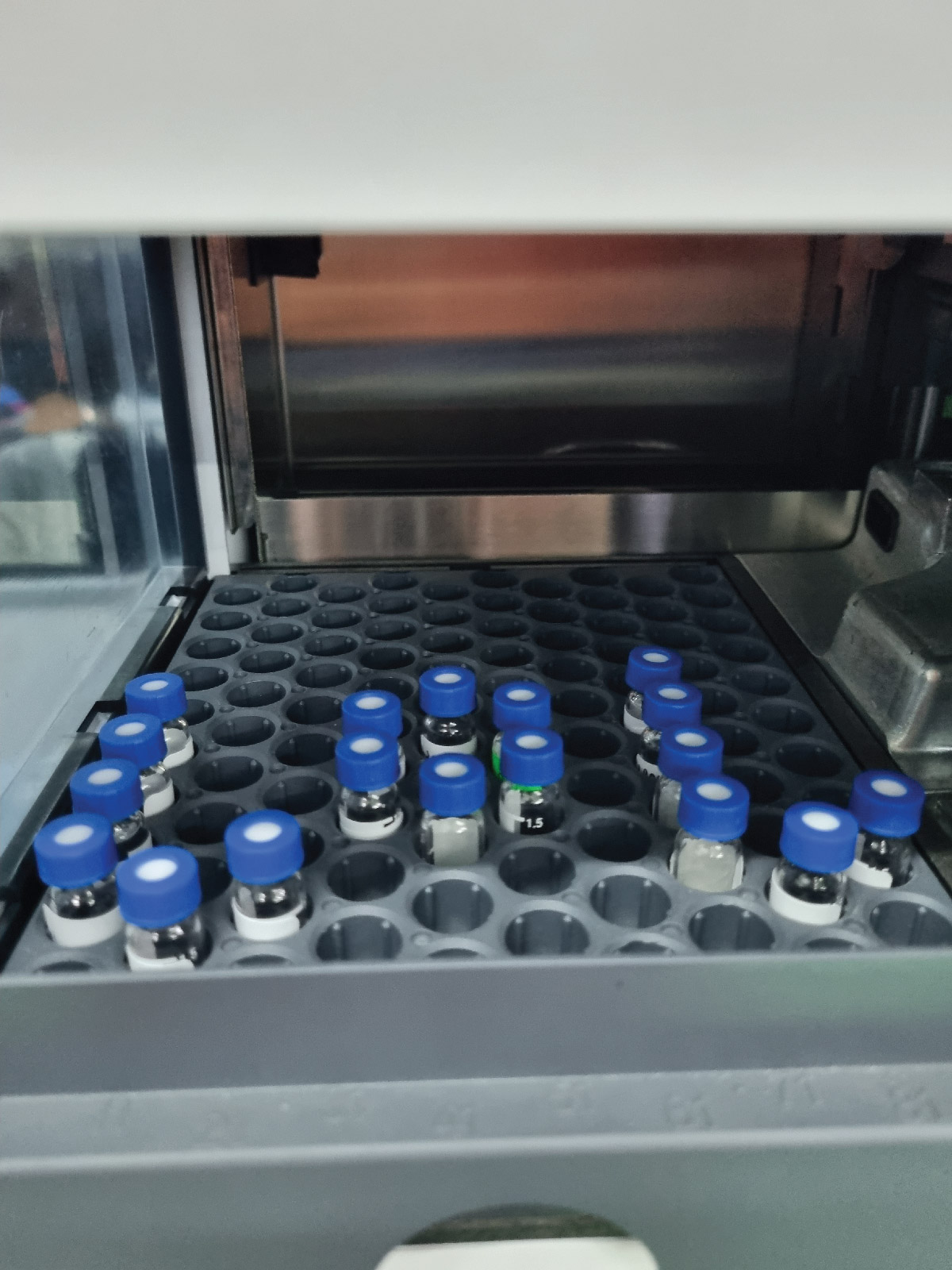High-Performance Liquid Chromatography (HPLC)

High-performance liquid chromatography (HPLC) is a chromatographic technique of great versatility and analytic power used in many aspects of drug manufacturing and research. It separates or identifies mixtures of substances into their components based on their molecular structure and composition. A liquid sample is injected into a stream of solvent (mobile phase) flowing through a column packed with a separation medium (stationary phase). The specific intermolecular interactions between the molecules of a sample and the packing material define their time on column. Hence, different constituents of a sample are eluted at different times. As a result, the separation of sample components is achieved.

High-performance liquid chromatography (HPLC) is useful for several types of analysis, including for:
- Analysis of drug
- Analysis of synthetic polymers
- Analysis of pollutants in environmental analytics
- Determination of drugs in biological matrices
- Isolation of valuable products
- Product purity and quality control of industrial products and fine chemicals
- Separation and purification of biopolymers such as enzymes or nucleic acids
